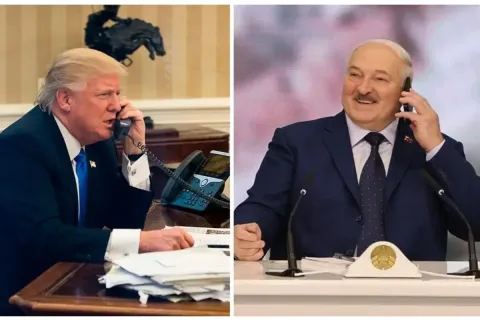In a surprise policy shift, the United States has lifted some sanctions on Belarus’ national airline, Belavia, a move that has drawn both cautious praise and sharp criticism across the geopolitical spectrum. The decision comes after Belarus released 52 political prisoners, including several foreign nationals—part of a broader diplomatic effort reportedly brokered under the direction of President Donald Trump.
The airline, blacklisted in 2023 over its ties to the Lukashenko regime and its support for Russia’s war in Ukraine, will now be permitted to access parts and servicing for its aging Boeing fleet. This marks the first meaningful sanctions relief granted to Belarus by the U.S. in over two years.
But the timing has raised eyebrows, particularly among U.S. allies in Eastern Europe. Just days earlier, Russian-made drones crossed into Polish airspace—an incident that reignited fears of spillover from the war in Ukraine. Critics argue the sanctions relief sends a mixed message at a critical moment for NATO unity and regional deterrence.
A Drone Incursion—and a Diplomatic Opening?
Just days before the sanctions were eased, Polish authorities reported a drone incursion from Belarusian airspace into Polish territory. The incident, though not causing physical damage, was seen as a provocative act and a clear violation of NATO member Poland’s sovereignty.
In that context, Washington’s decision to reward Minsk with sanctions relief has raised difficult questions.
“The timing is puzzling,” said a senior Eastern European diplomat. “What message does it send when drones cross into NATO airspace, and the response from the U.S. is to open the door to aircraft servicing for the regime enabling it?”
Some observers fear the move could be interpreted by adversaries as a sign of weakness or inconsistency—especially when regional allies are working to bolster defense and deterrence in the face of ongoing hybrid threats from Russia and its partners.
Strategic Shift or Symbolic Gesture?
While the release of political prisoners is being framed as a diplomatic success, many observers are questioning the depth of the U.S. commitment to its prior stance on Belarus.
“This is not a wholesale removal of sanctions,” a senior State Department official clarified. “It’s a narrow, conditional easing, tied directly to the release of prisoners and humanitarian considerations.” Other sanctions, including those targeting Belarusian officials and broader trade restrictions, remain in place.
However, the move represents a break in strategy. Since 2020, the U.S. and EU have maintained a united front on isolating Belarus over election fraud, human rights abuses, and its complicity in Russia’s aggression. That unity now appears to be fraying.
“This is not a capitulation,” said one U.S. envoy. “It’s a calculated exchange—prisoner releases in return for narrowly targeted relief.”
But others see it differently. Belavia is not merely a civilian airline, critics argue, but a state-controlled entity deeply tied to the Belarusian regime, which has facilitated Russian military movements and benefited from Western disengagement.
“This sends the wrong message at the wrong time,” said a security analyst in Vilnius. “It tells Belarus—and Moscow—that provocations like drone flights over NATO soil are not only tolerated, but may even be rewarded if timed cleverly.”
Reactions from Europe
European allies, particularly Poland and the Baltic states, are watching closely. Although official responses have been measured, sources inside several governments report concern about the direction of U.S. policy—especially if this becomes part of a broader pattern.
So far, the European Union has kept its sanctions on Belavia intact, signaling a divergence in strategy between Brussels and Washington.
“Washington may call this pragmatic diplomacy,” one Polish MP said, “but in our region, it looks dangerously close to appeasement.”
What Comes Next?
Whether this incident represents a broader shift or a diplomatic one-off remains to be seen. Key developments to watch include:
Further U.S. Sanctions Policy: Will more Belarusian or Russian entities receive relief? Will future moves be made in coordination with Europe?
Belarus’s Next Steps: If Minsk continues to release prisoners, will that justify more engagement? Or will its role in Russian aggression outweigh those concessions?
Reactions from NATO: The alliance’s response to the Poland incursion—and to perceived U.S. drift—could set the tone for transatlantic unity moving forward.
it may signal a recalibration of U.S. foreign policy—one that values transactional wins and diplomatic flexibility over alliance cohesion and long-term pressure strategies.
The move has raiseed alarms in European capitals already wary of Russia and eager for unity among Western allies. If unilateral gestures continue, the sense of drift between Washington and Brussels may grow—undermining the very unity that has, until now, been the key to take on Russia.
